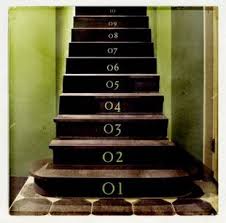Today is the first day I felt Autumn fully crash its way through the falling leaves and into being. The days of sipping cider in sun kissed pub gardens wearing flimsy clothing have passed for another year. The coats have been plucked from hibernation and the pub position of choice has moved from garden to Winchester by the fire.
While it’s easy to bemoan the loss of summer and engage in some melancholia for the winter ahead the fact is this is one of my favourite times of year
The air always seems a little clearer in Autumn. Gone is the mugginess of summer and the fog of winter has yet to creep into life. The colours seem a little more defined, perhaps the chill in the air just sharpens the senses or perhaps the falling leaves express themselves that little bit brighter as they rage, rage against the dying of the light.
October and November come with so much promise, the Azure sky signals a time to live and laugh outside. Autumn festivities invite us to cherish the chill in the air before it turns to the bitterness of winter. While the bright Autumnal light remains and the leaves have yet to decide what colour they are to depart the world wearing.
Autumn is the time to be out walking in the countryside, to see the landscape through the condensation of breath, feasting our eyes on the torrent of colour around us. Apple green and Olive Downs form a horizon against the Azure sky; Auburn, Burgundy, Crimson, Bronze and Amber variously paint the trees and quilt the ground. The first frost will soon be here to scatter its dust and bring a crunch to our ramblings.
October’s end brings All Hallows Eve with all of its charm. A time for frightening stories, carving jack-o’-lanterns and apple bobbing. More importantly a time to dress up and come together for mulled wine drinking while children doing the rounds demanding ‘Trick or Treat’.
Chimneys cough and splutter from their summer slumber as eyes, ears and noses ready themselves for the beast of all fires on Bonfire Night.
Oh Bonfire Night, why do you only come but once a year!
Crowds line the streets breathing the evocative smell of kerosene as burning parades march past, mittened and gloved hands clutch pints of ale, cups of roasted chestnuts and plates of pulled pork. Cries of ‘No Popery’ do the rounds as the drums band into life as the serpent of fire makes its way to the Bonfire Ground.
We follow close behind, hopping in and out of low beamed pubs full to bursting to refill our glasses. Walking across the dark river gasps and glinting eyes glint skywards as the first fireworks go up, lovers intermingle coats and hold hands in warm pockets. As the fireworks end the chill which has been kept at bay since before the parade returns and the crowd shuffles and shivers to keep warm.
Eventually a new cheer does the rounds. They’re lighting the bonfire. Dressed as 17th Century smugglers the Bonfire Boys circle with their kerosene torches. Everyone steps a little closer in anticipation of the musky warmth of the fire. A couple of minutes transforms the cold, dark foreboding mass into a towering Babel of fire speaking a mesmerising language of wonder that all understand.
It’s as we turn away from the spectacle that winter places its creeping fingers down our backs, breathing its promise of worse things to come.
So I’m going to enjoy it while the bright Autumnal light remains, while the chill is still novel, while the promise of festivities lays out ahead and while the leaves have yet to decide what colour they want to depart the world wearing.














